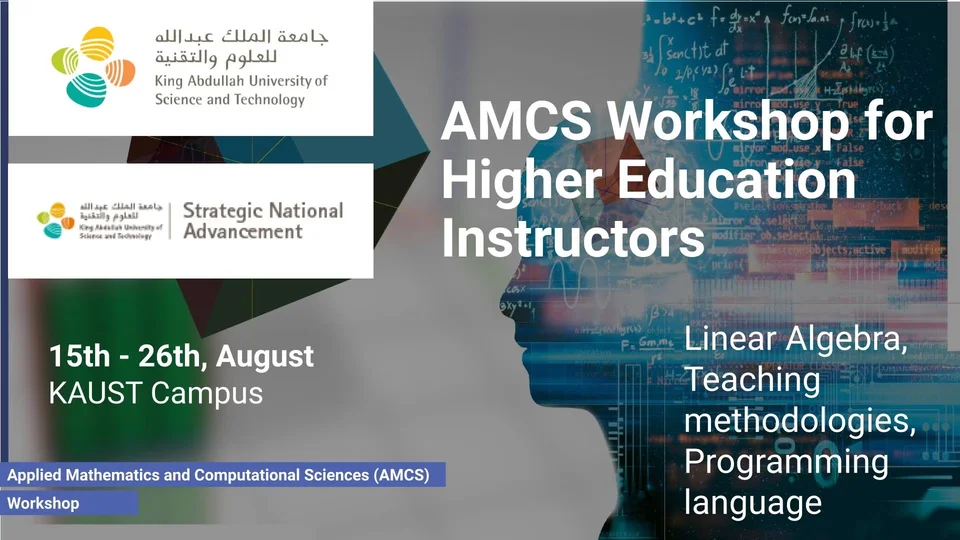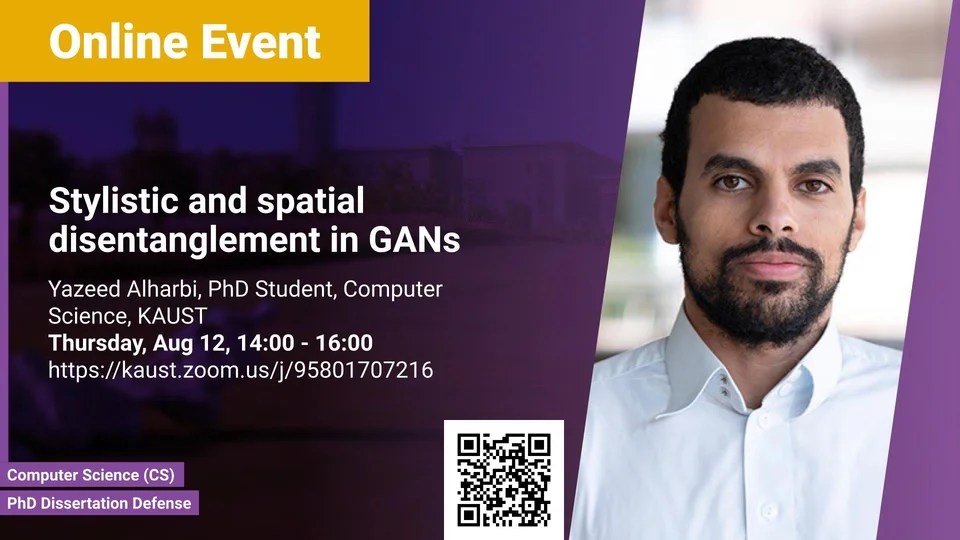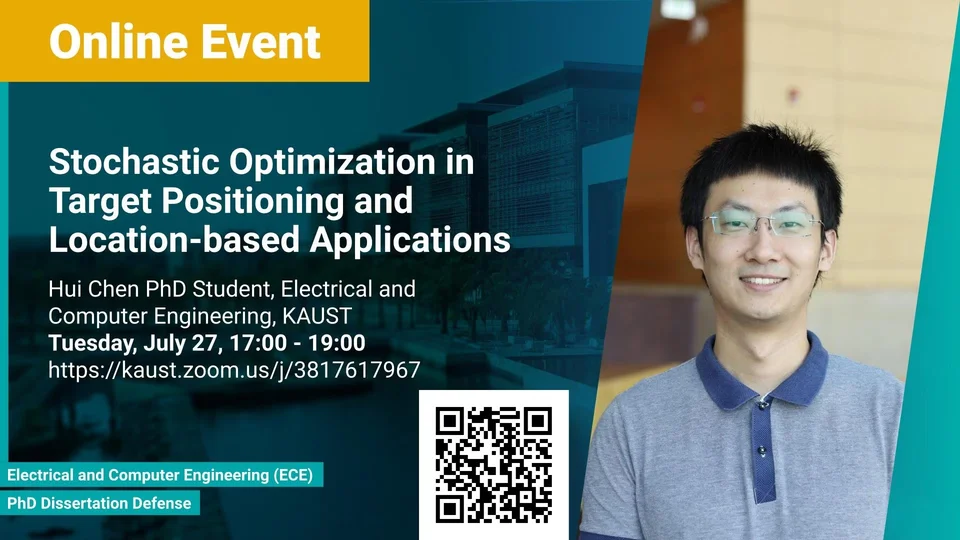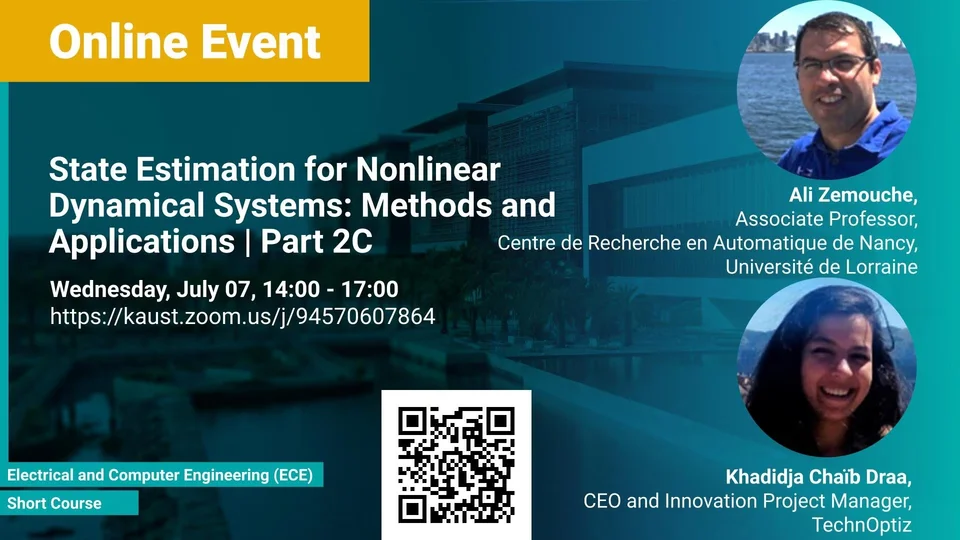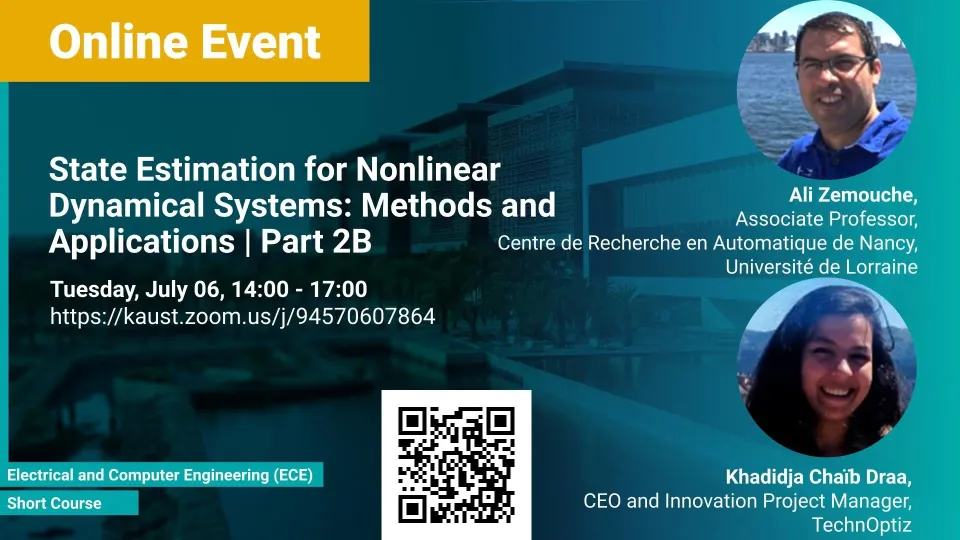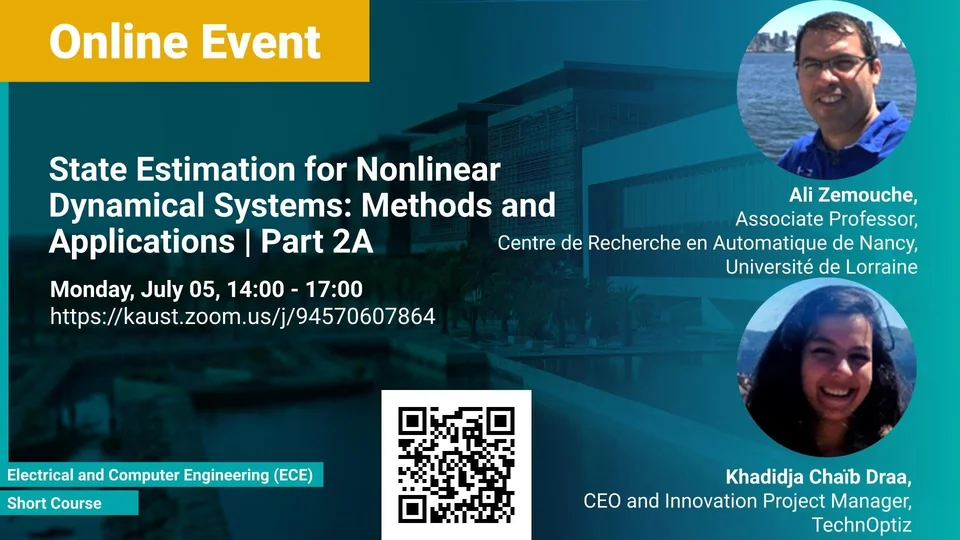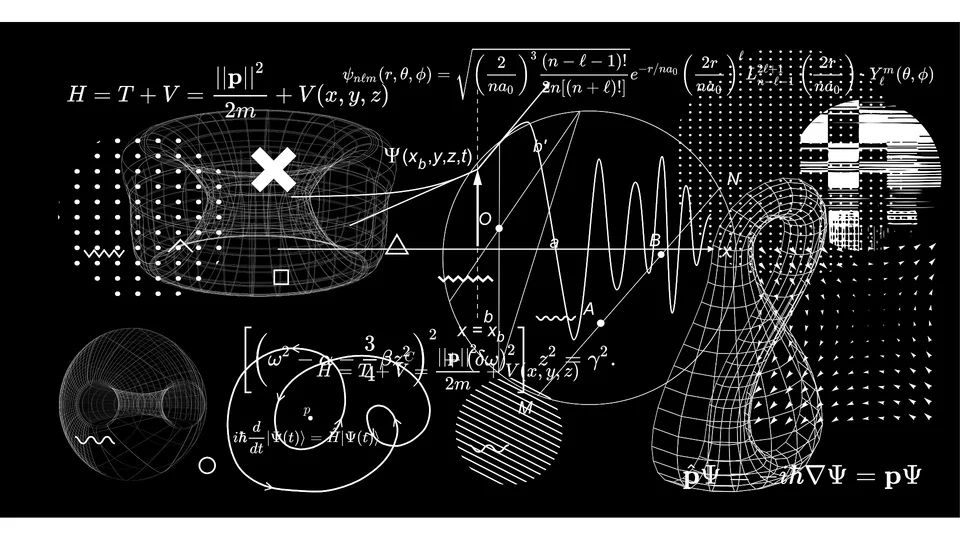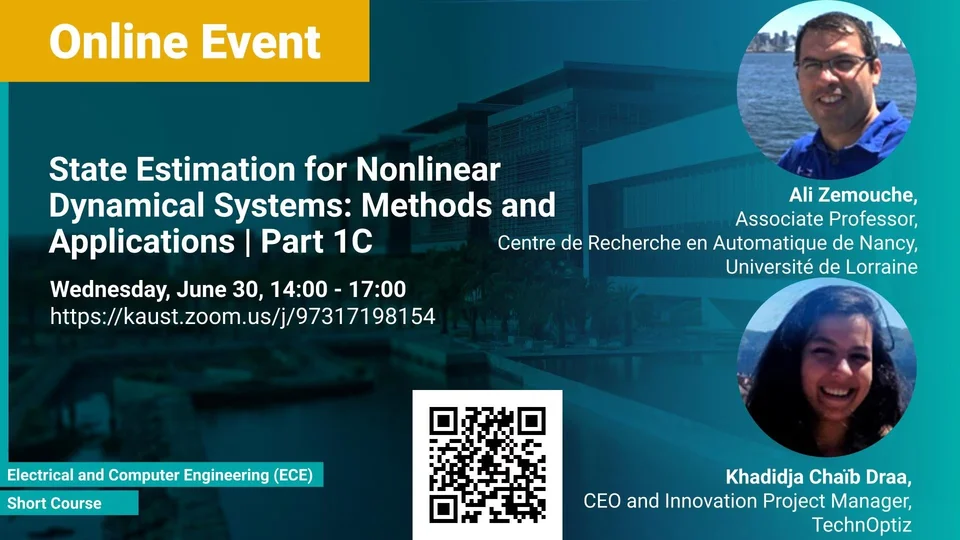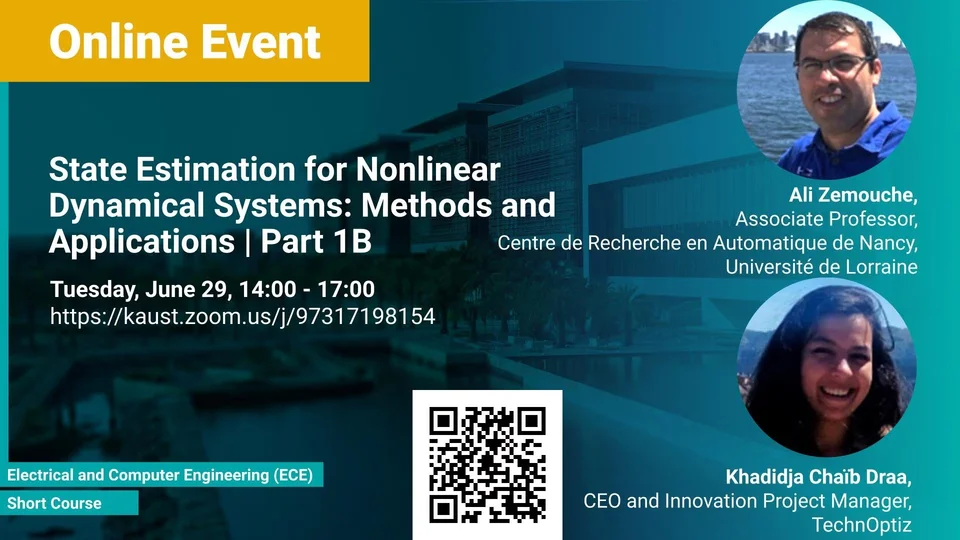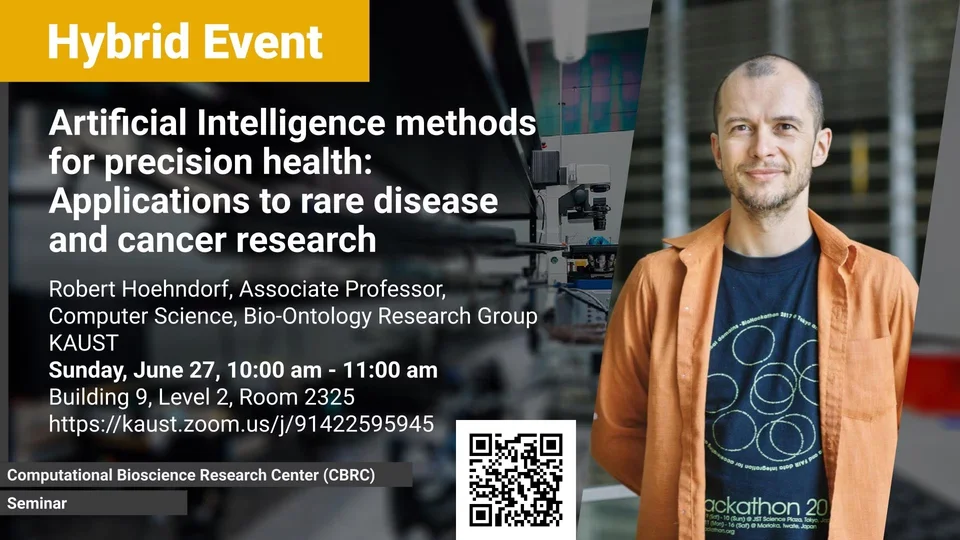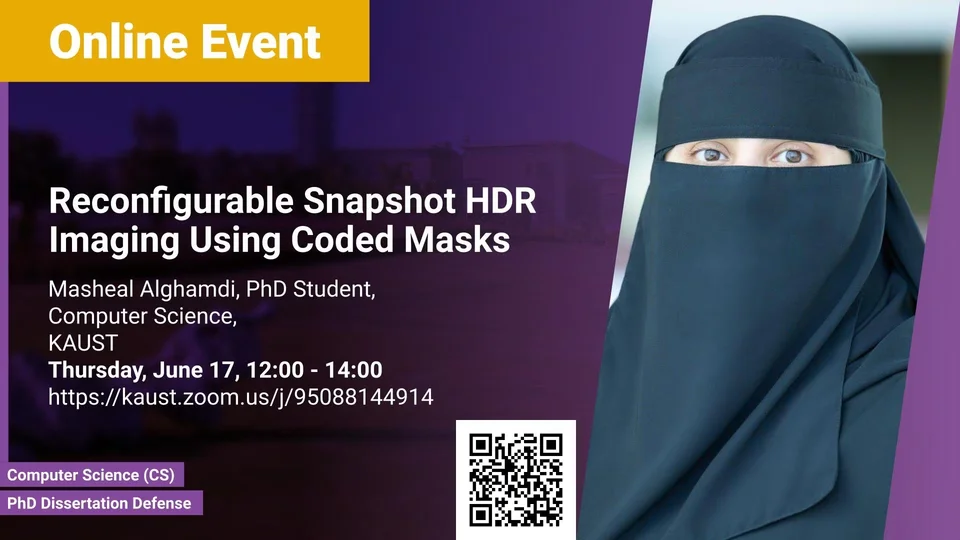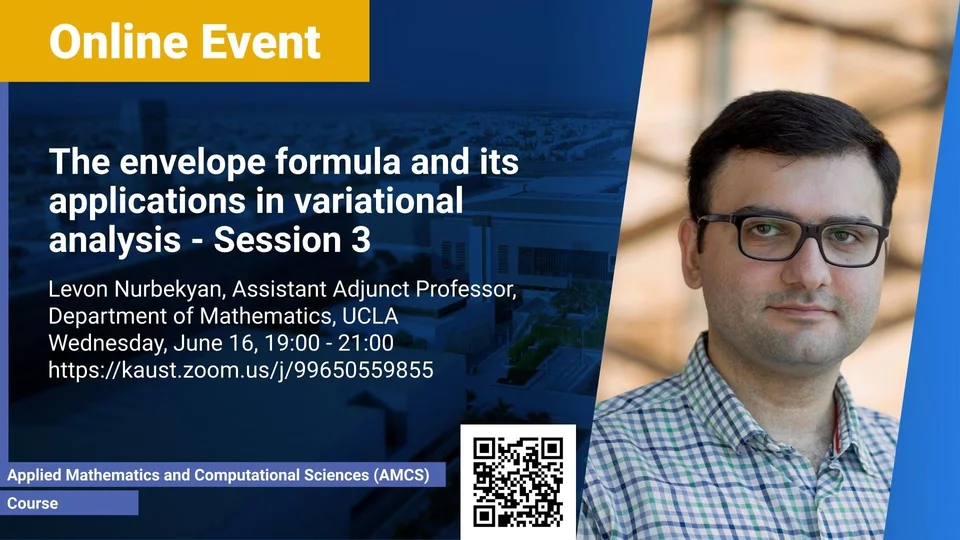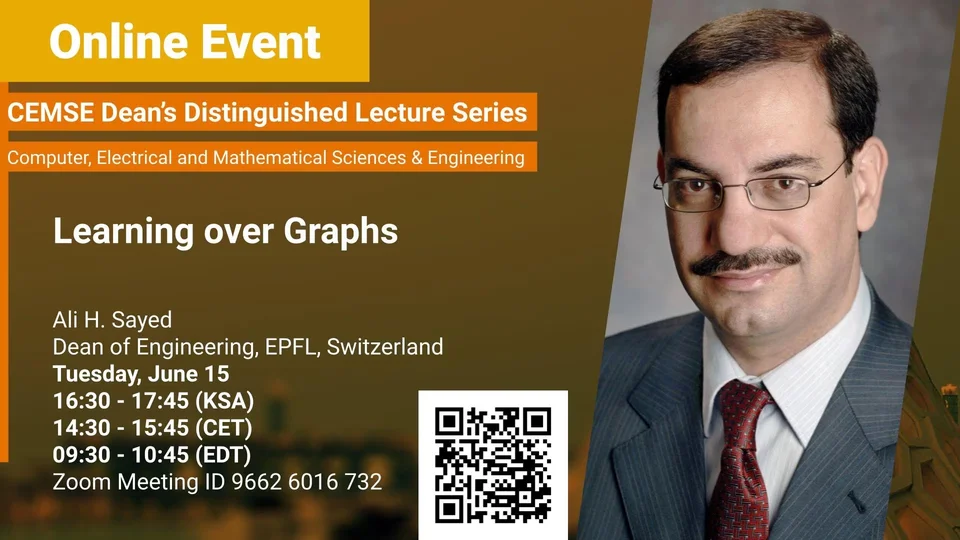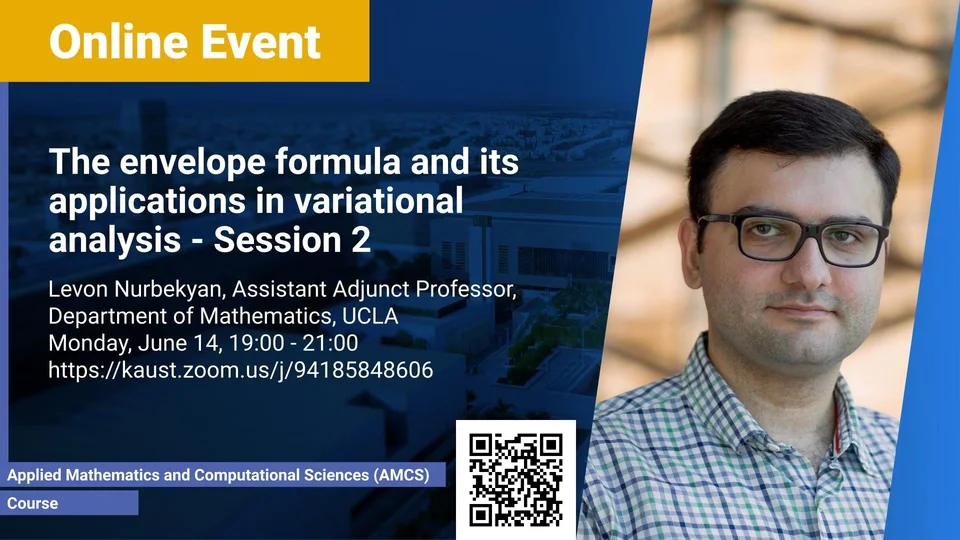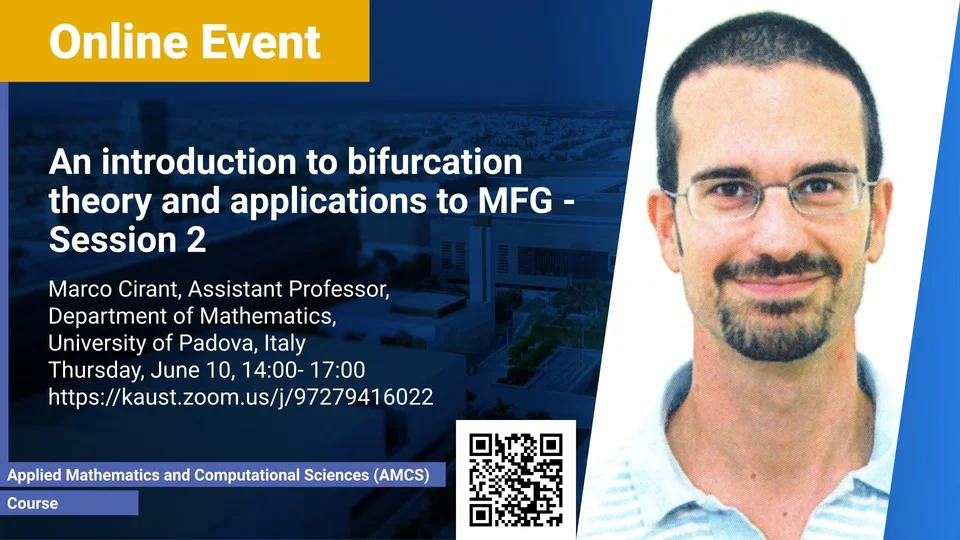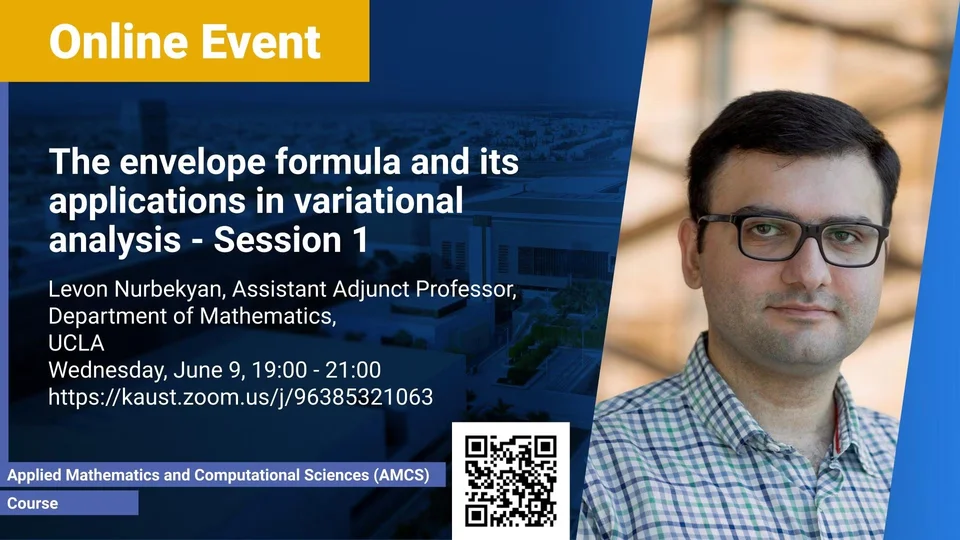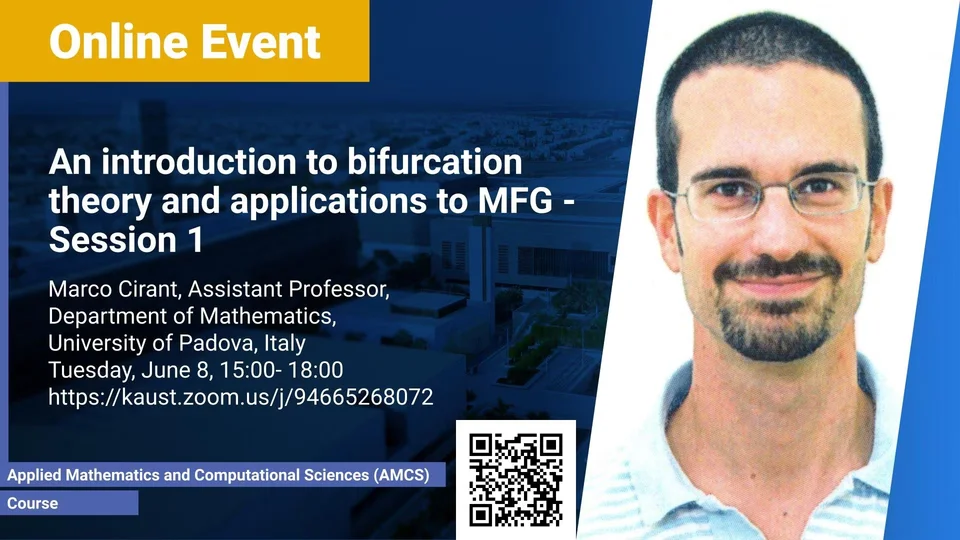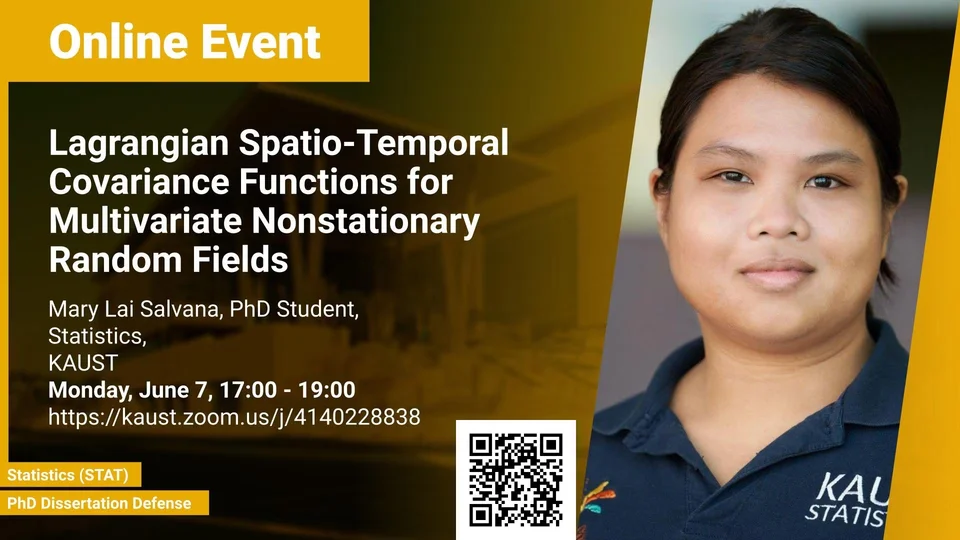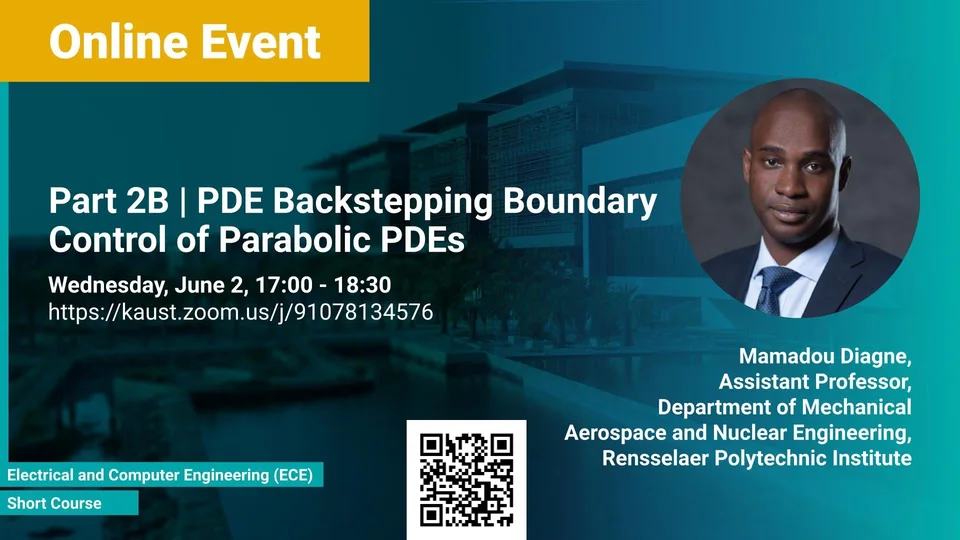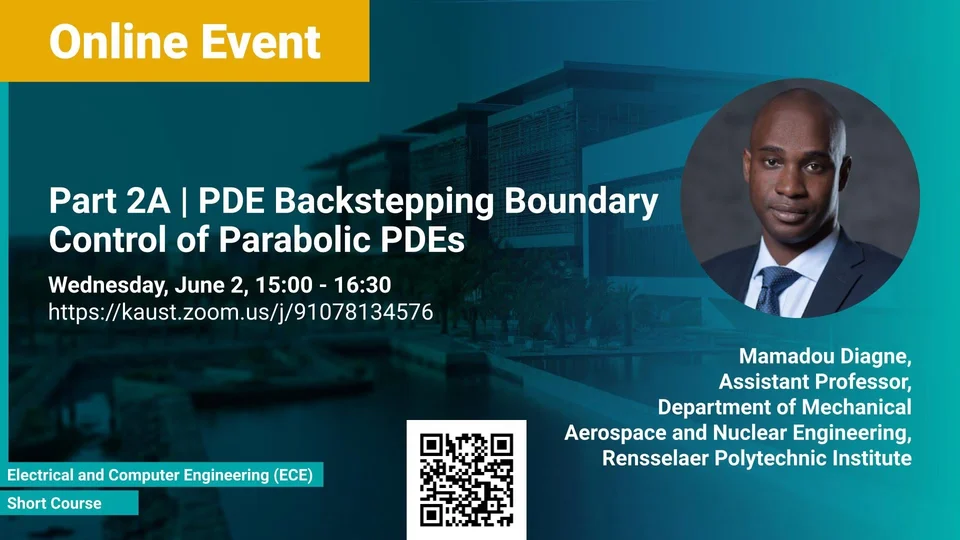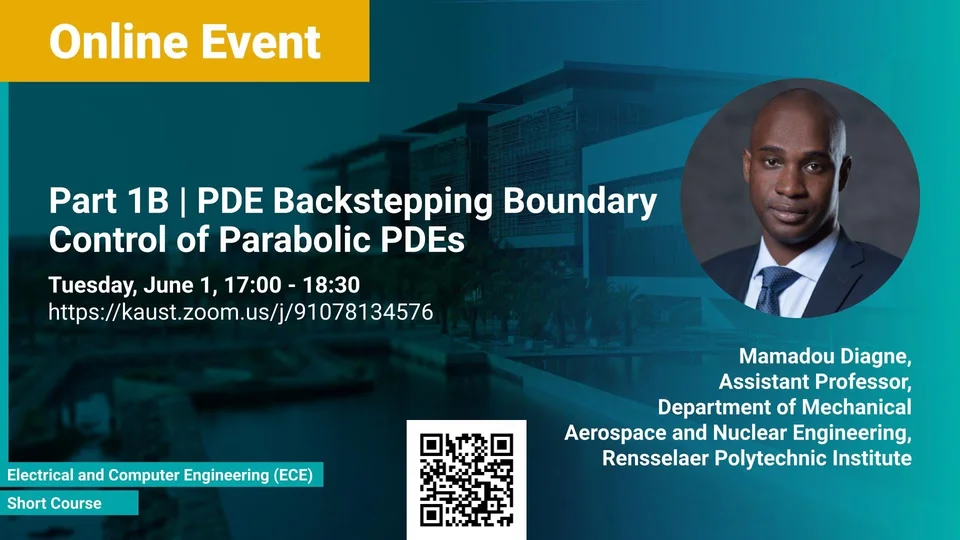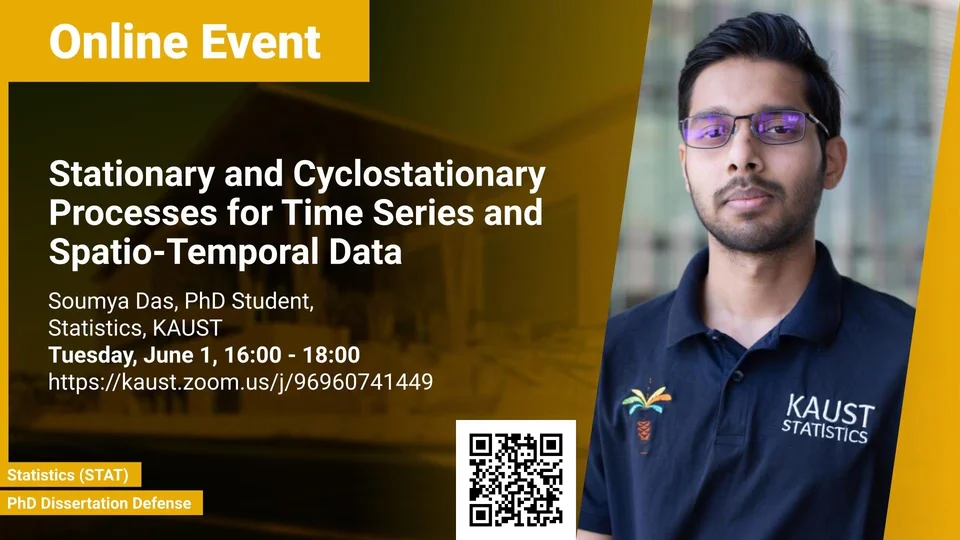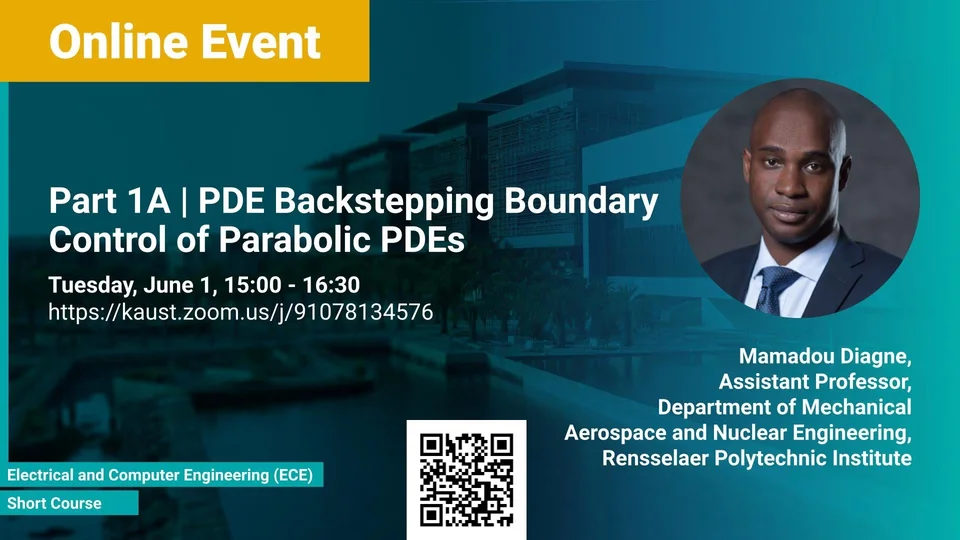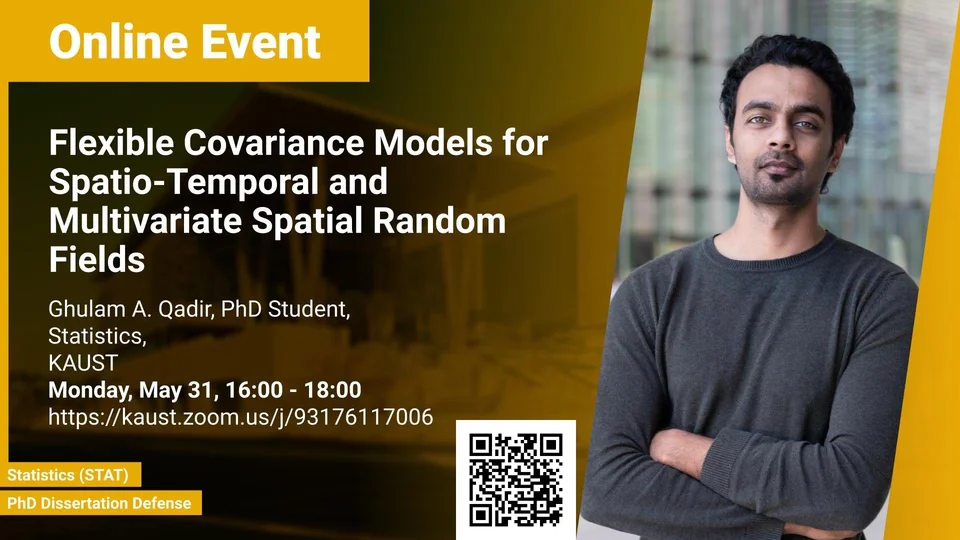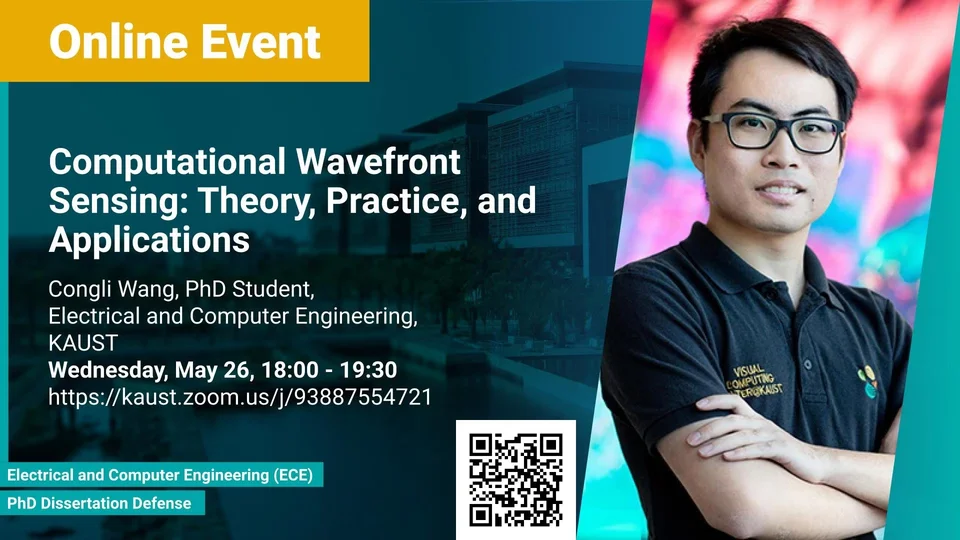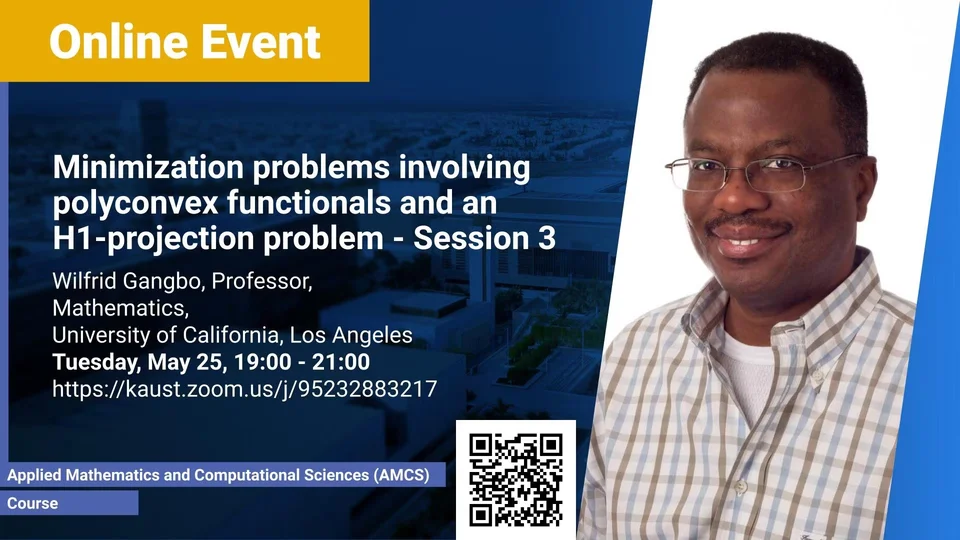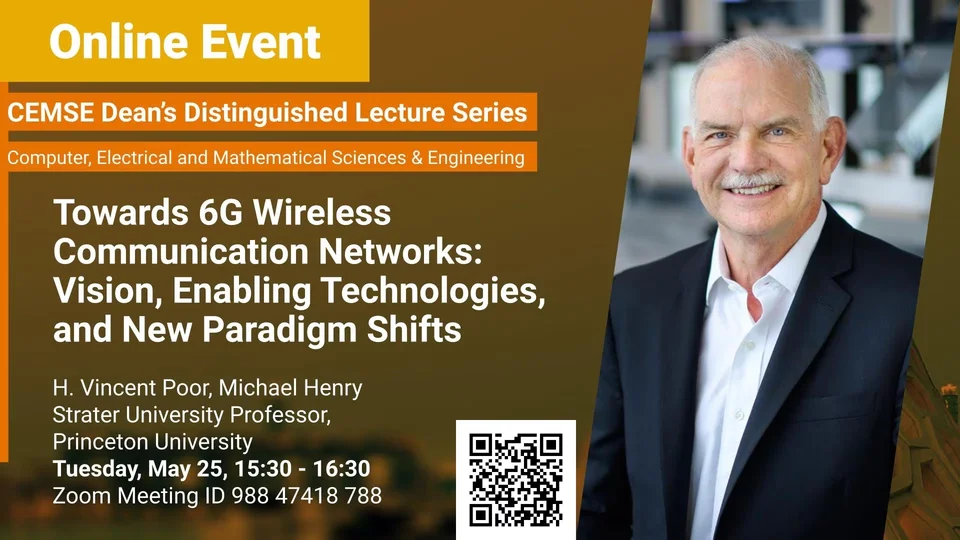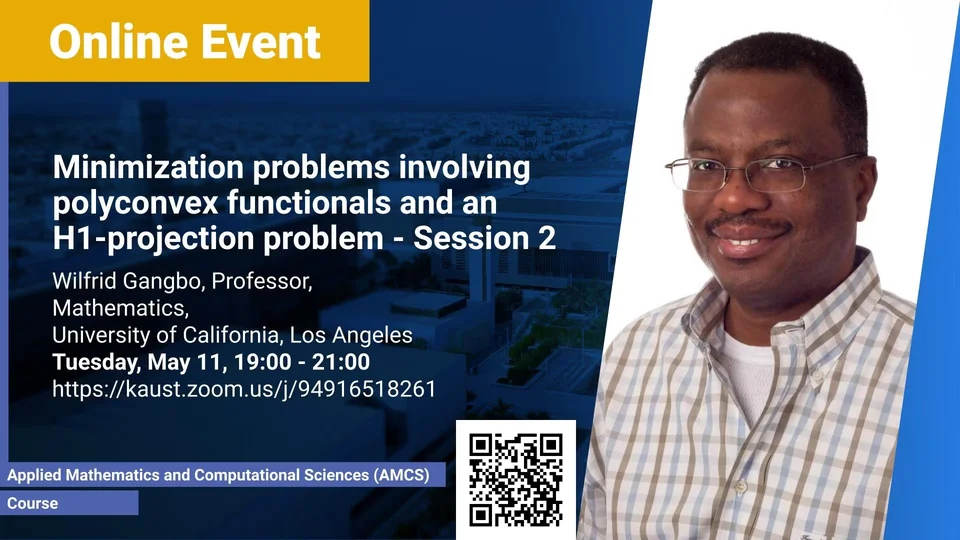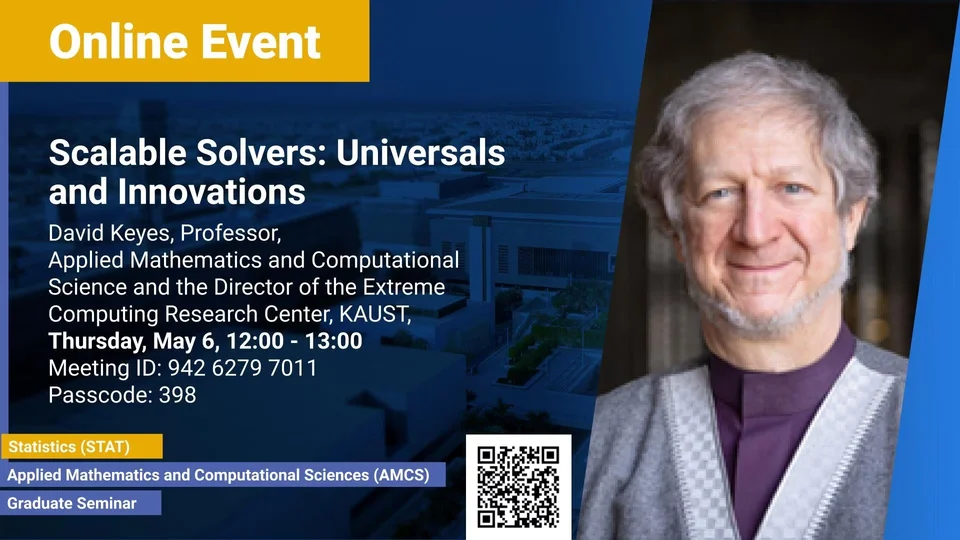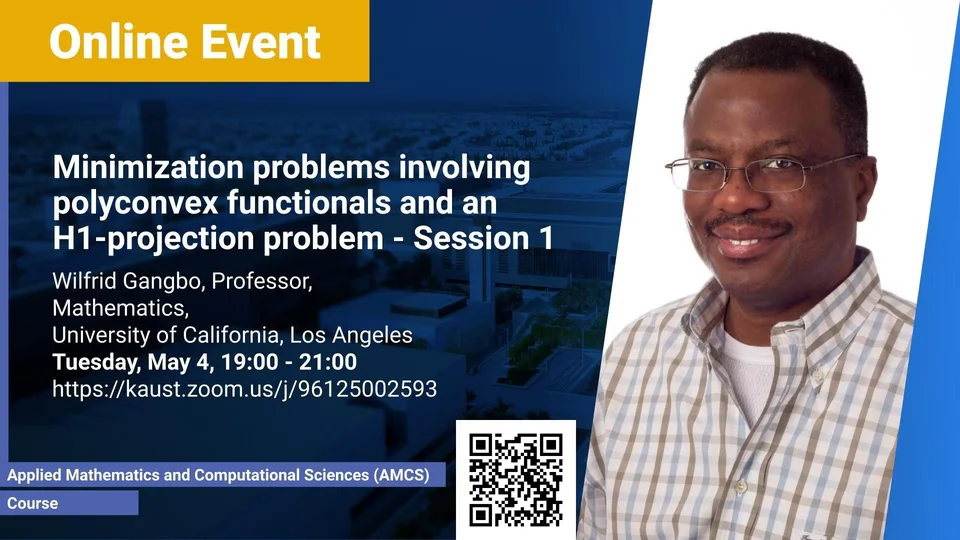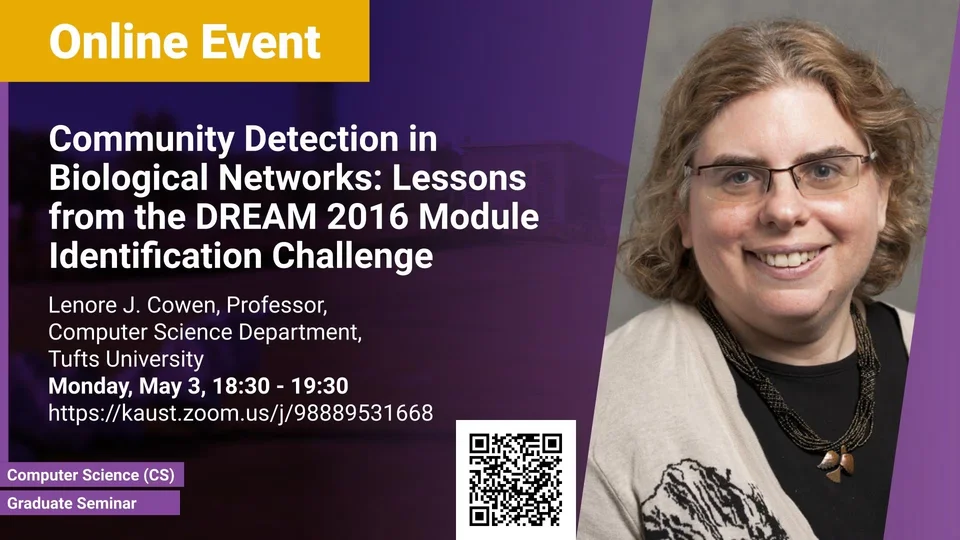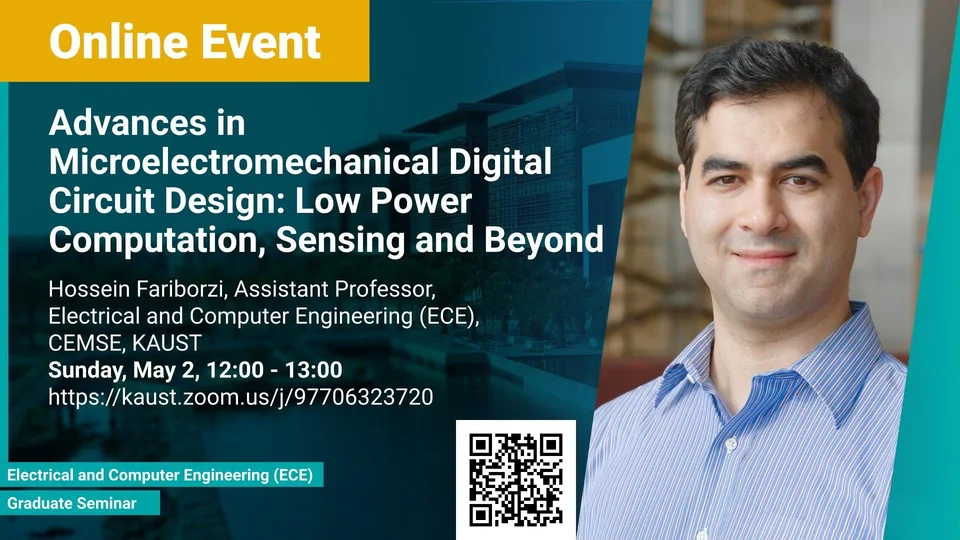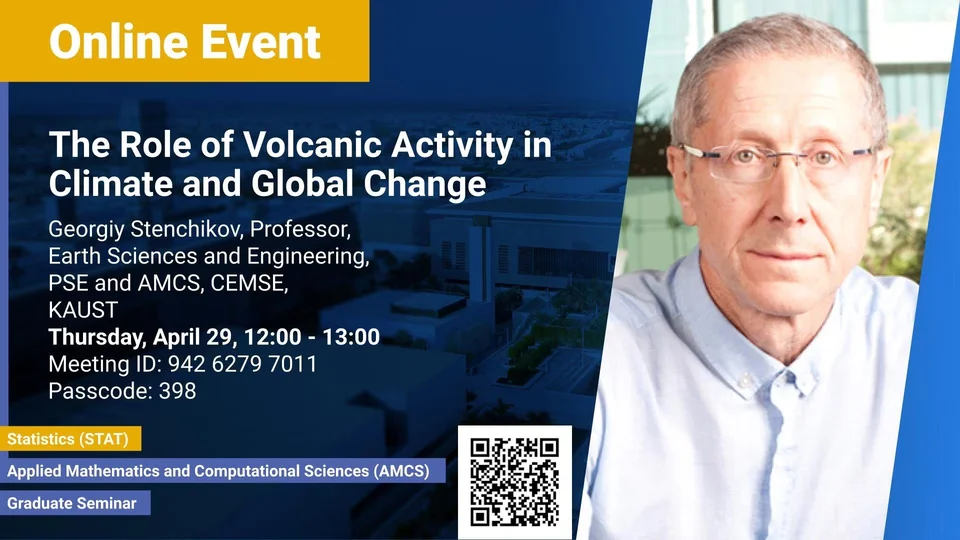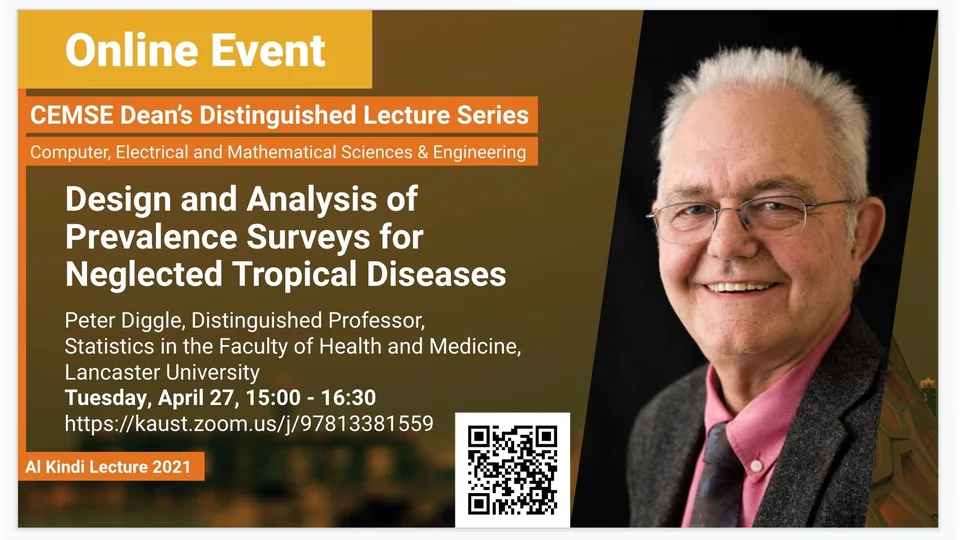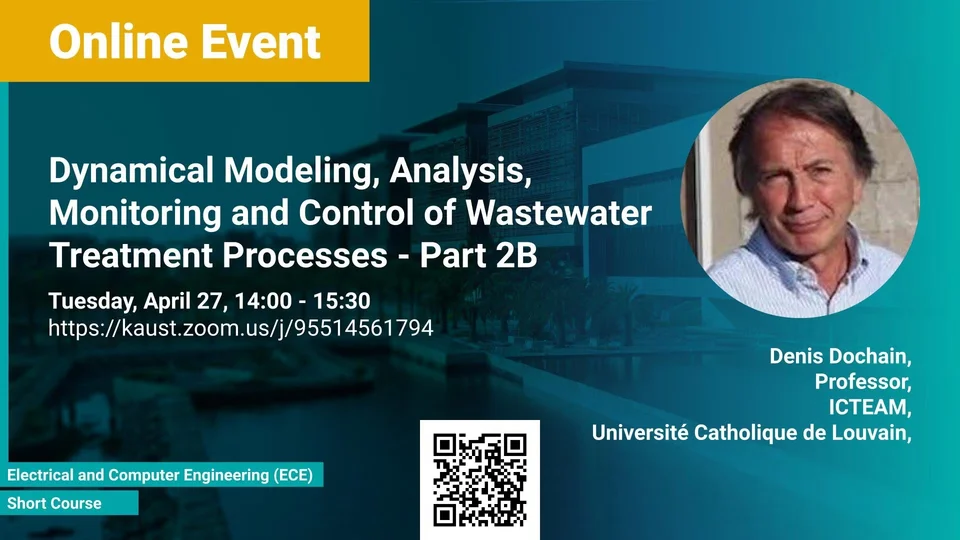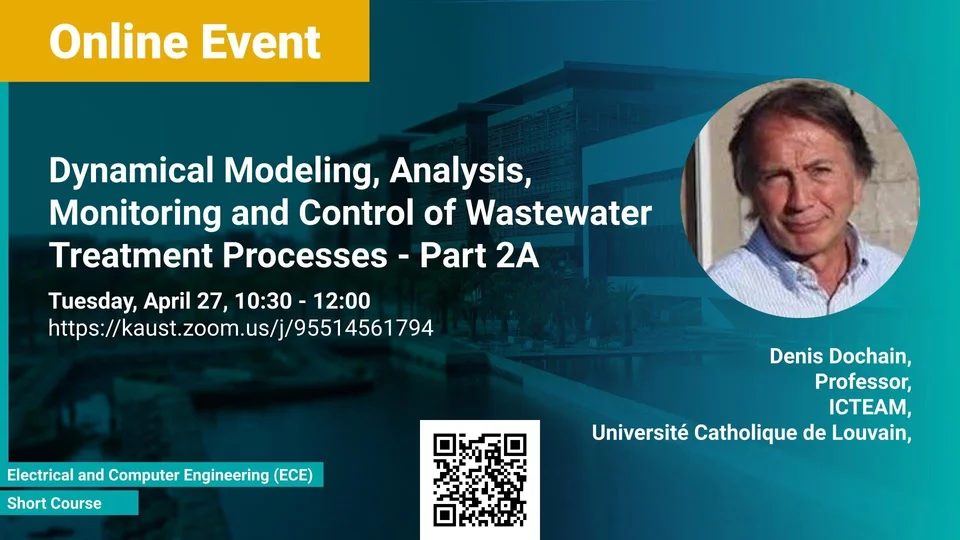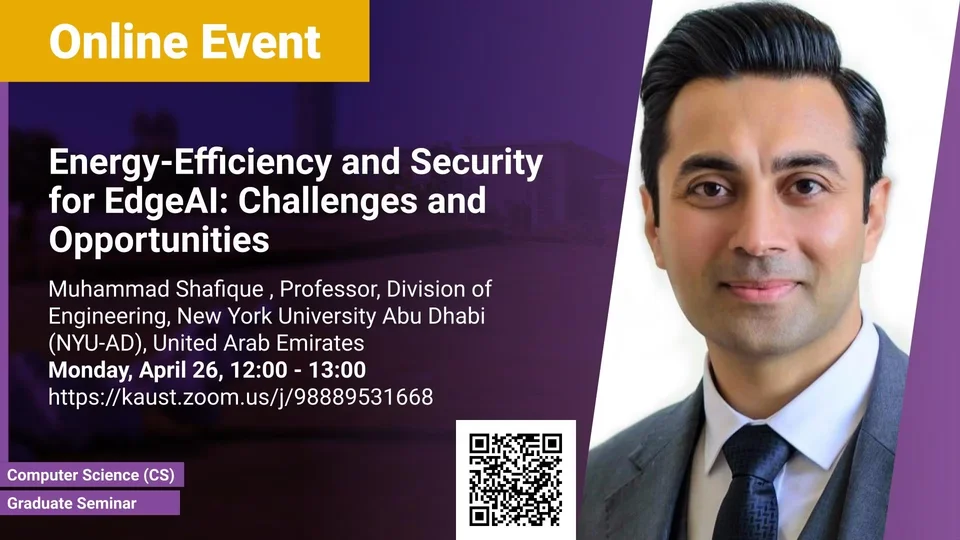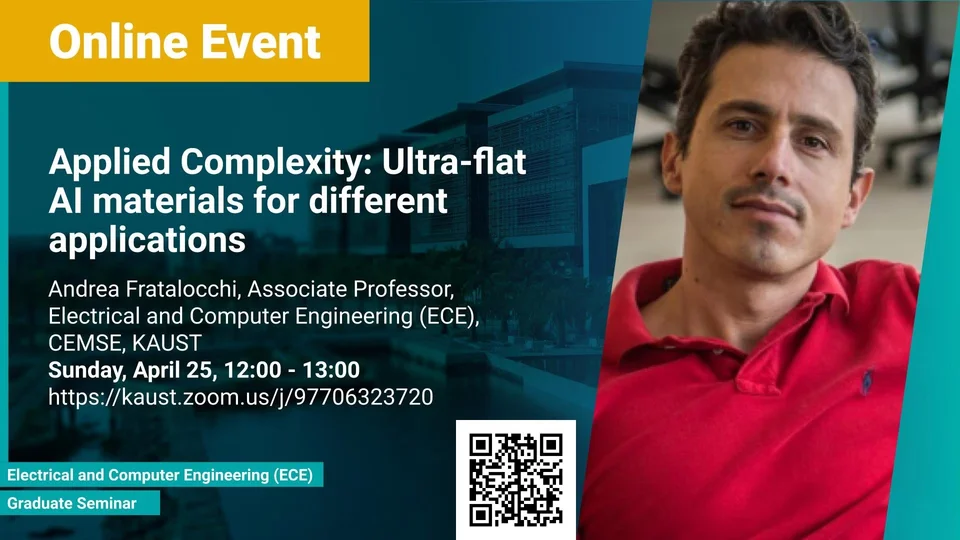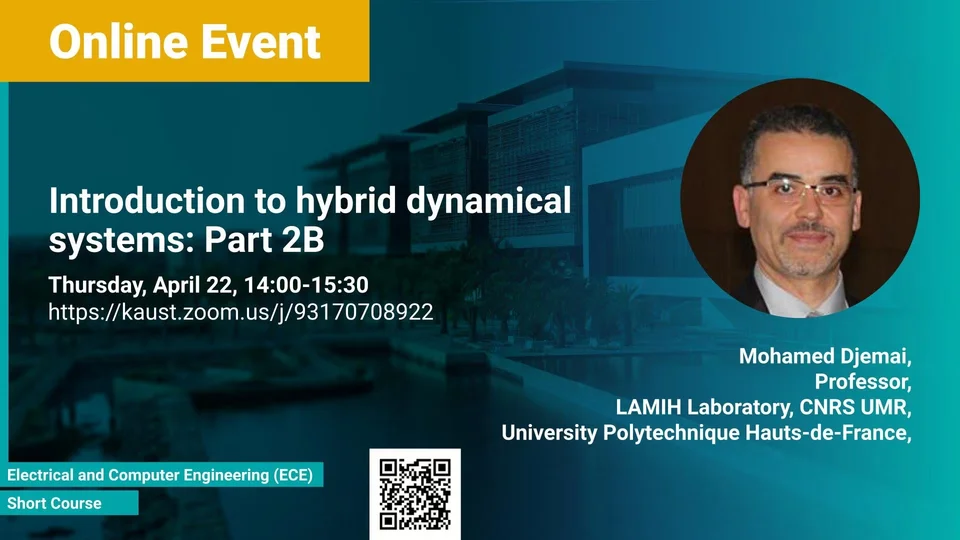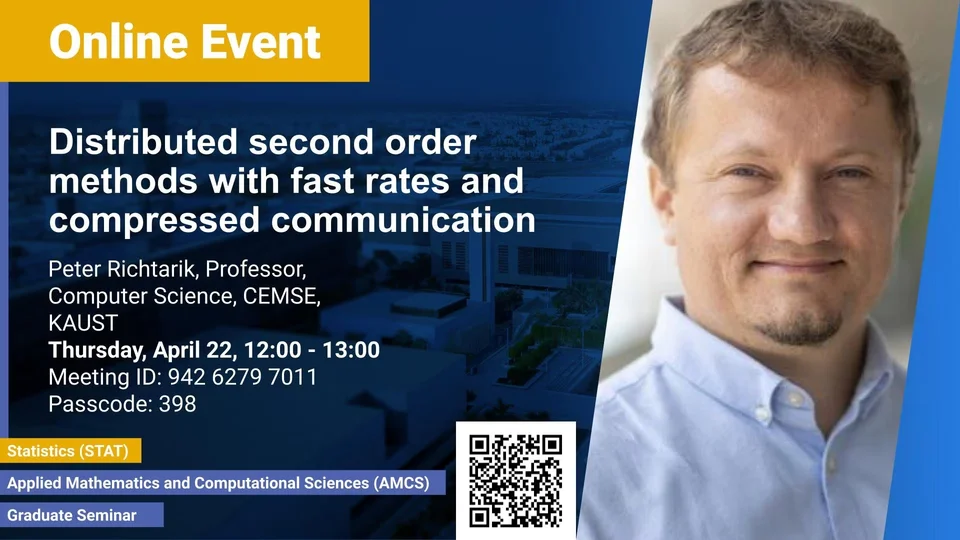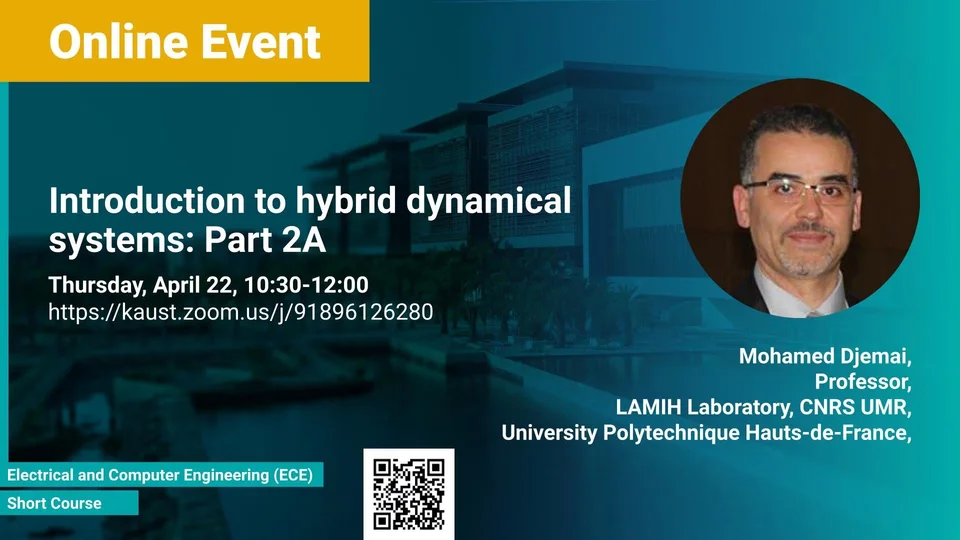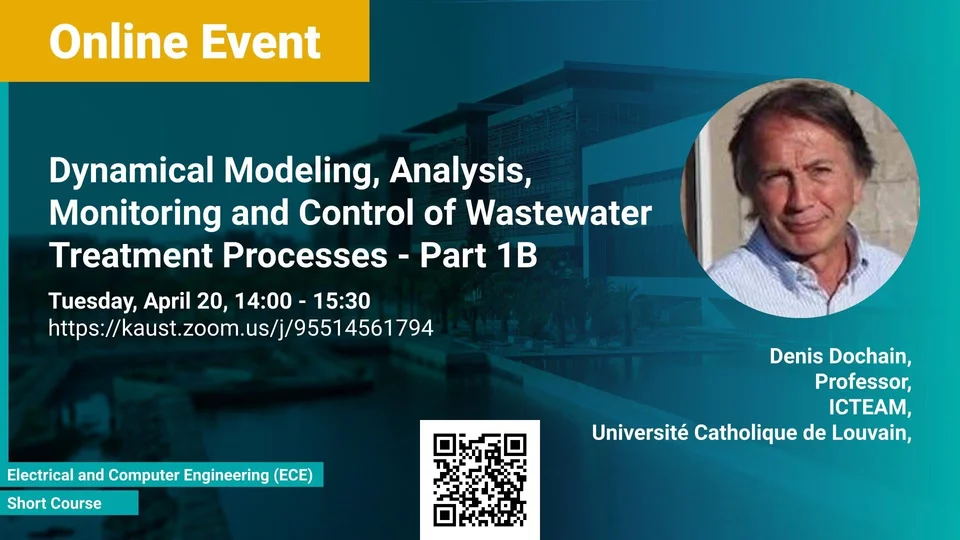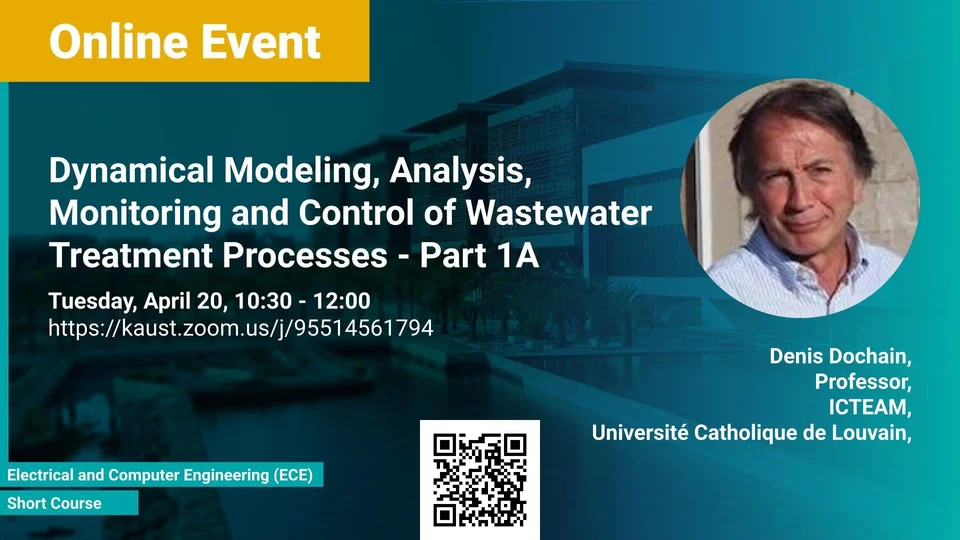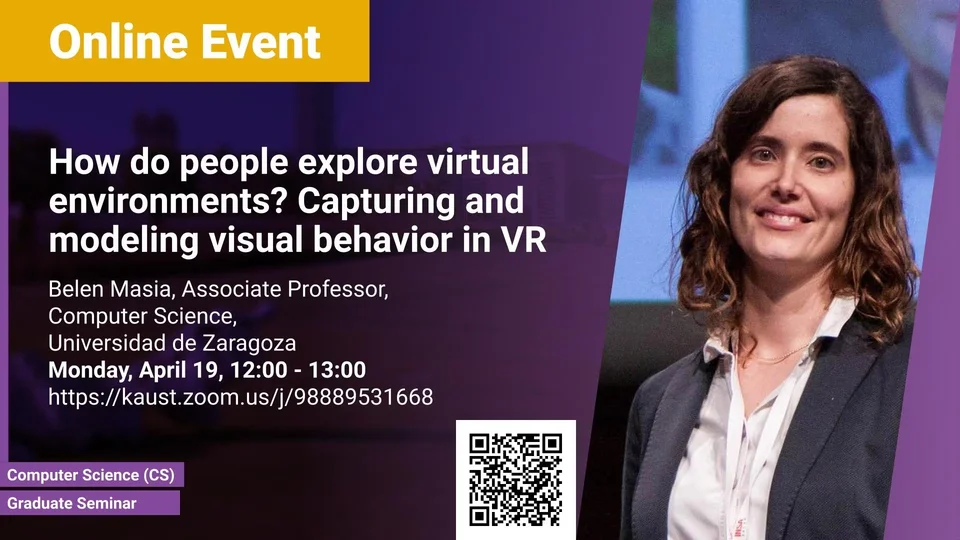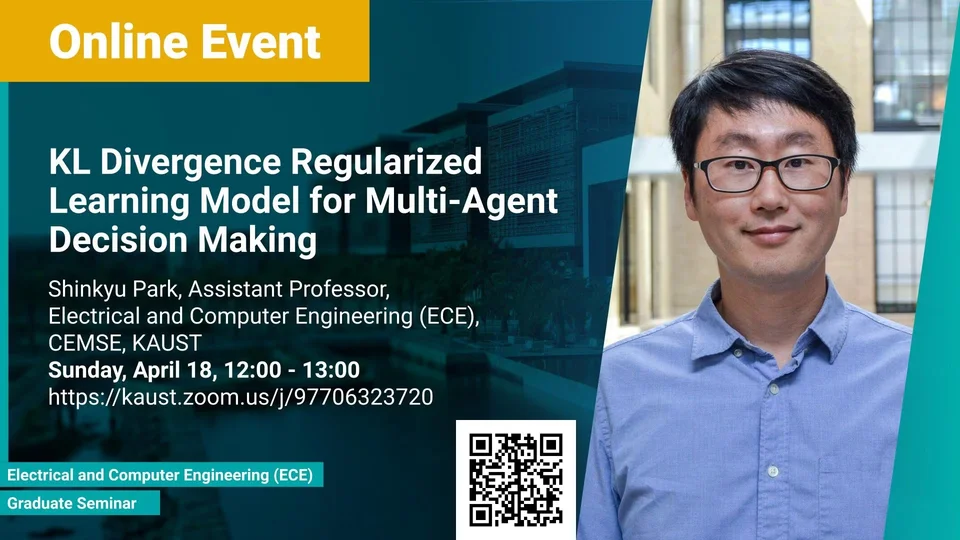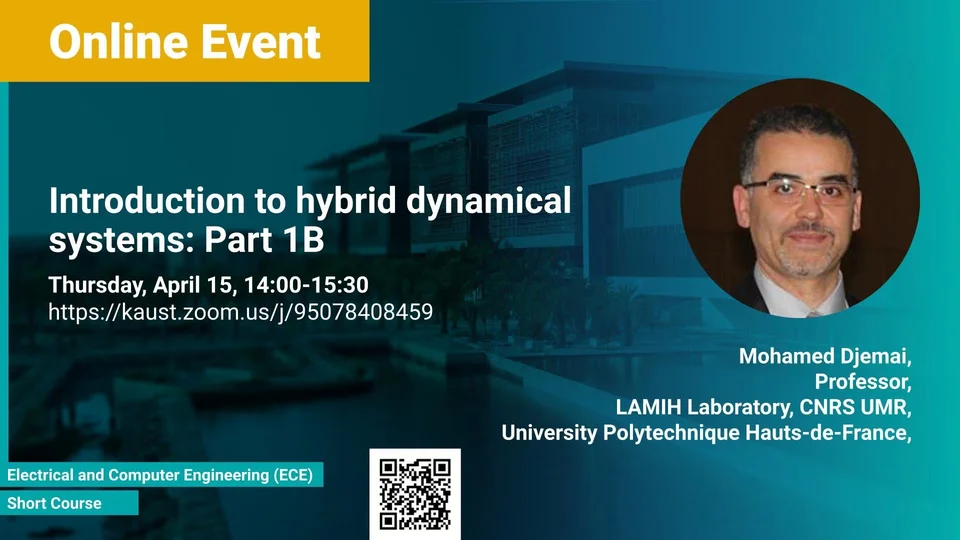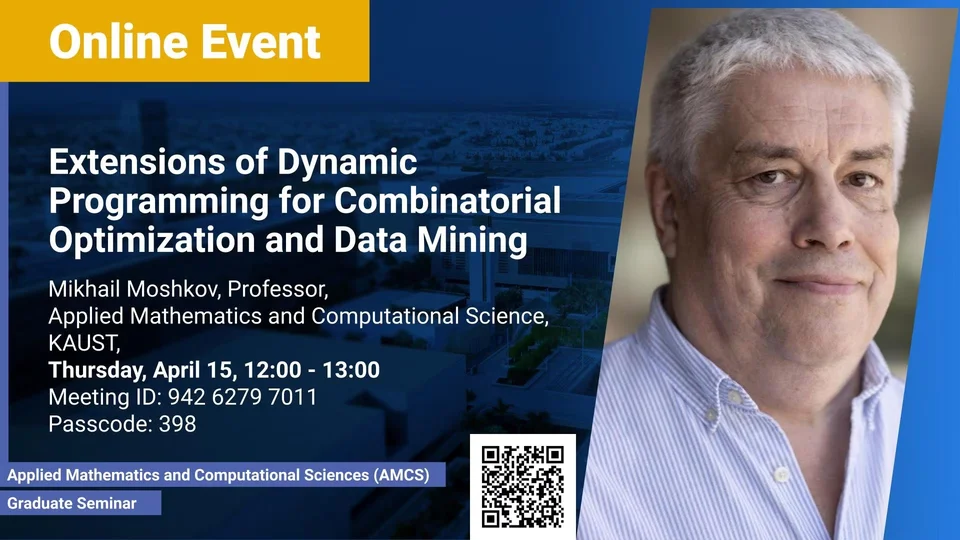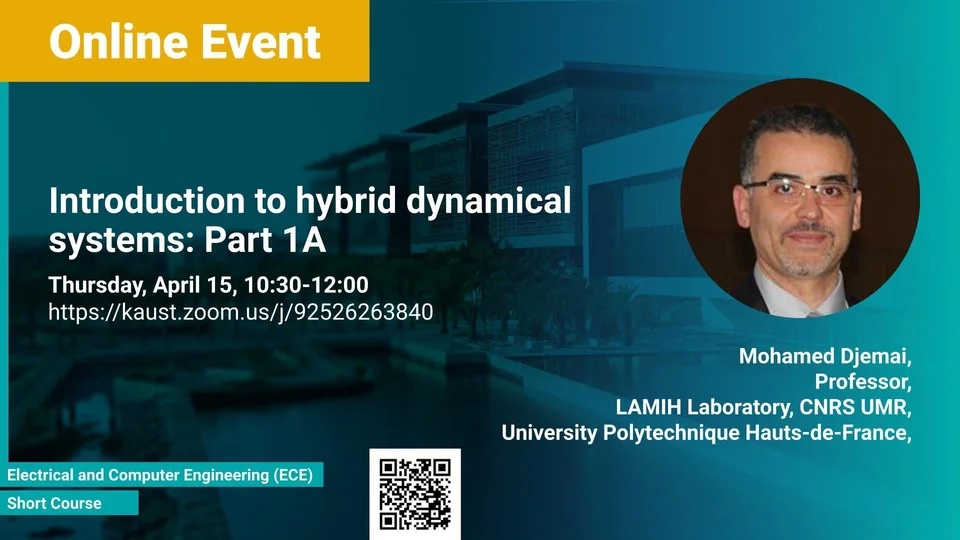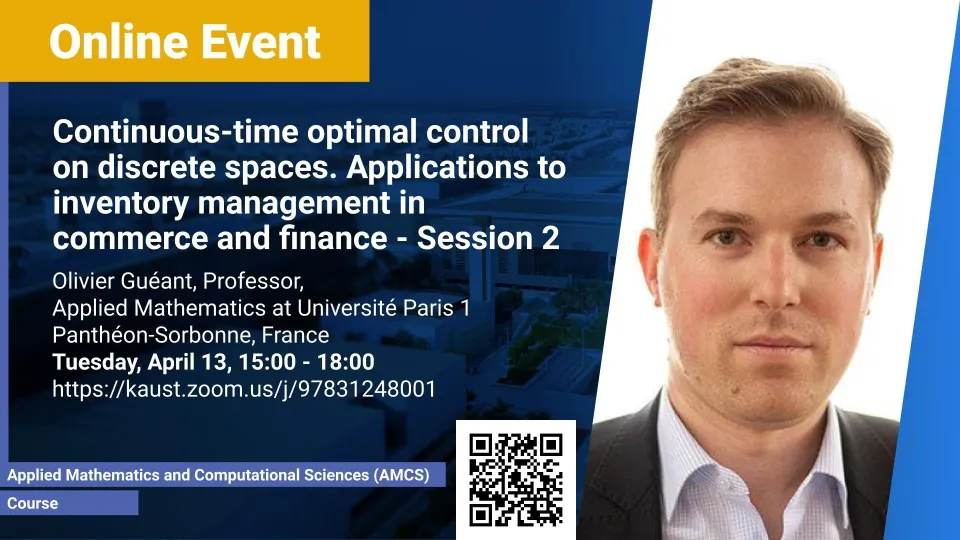Events
Aug 15 - Aug 21, 2021
Aug 8 - Aug 14, 2021
Jul 25 - Jul 31, 2021
Jul 4 - Jul 10, 2021
State Estimation for Nonlinear Dynamical Systems: Methods and Applications | Part 2C
Prof. Ali Zemouche, Université de Lorraine and Khadidja Chaïb Draa, TechnOptiz
KAUST
State Estimation for Nonlinear Dynamical Systems: Methods and Applications | Part 2B
Prof. Ali Zemouche, Université de Lorraine and Khadidja Chaïb Draa, TechnOptiz
KAUST
State Estimation for Nonlinear Dynamical Systems: Methods and Applications | Part 2A
Prof. Ali Zemouche, Université de Lorraine and Khadidja Chaïb Draa, TechnOptiz
KAUST
Jun 27 - Jul 3, 2021
State estimation for nonlinear dynamical systems: Methods and applications | Part 1C
Prof. Ali Zemouche, Université de Lorraine and Khadidja Chaïb Draa, TechnOptiz
KAUST
State Estimation for Nonlinear Dynamical Systems: Methods and Applications | Part 1B
Prof. Ali Zemouche, Université de Lorraine and Khadidja Chaïb Draa, TechnOptiz
KAUST
Jun 13 - Jun 19, 2021
The envelope formula and its applications in variational analysis - Session 3
Adjunct Prof. Levon Nurbekyan, Department of Mathematics at UCLA
KAUST
Learning over Graphs
Ali H. Sayed, Dean of Engineering, EPFL Switzerland
KAUST
The envelope formula and its applications in variational analysis - Session 2
Adjunct Prof. Levon Nurbekyan, Department of Mathematics at UCLA
KAUST
Jun 6 - Jun 12, 2021
An introduction to bifurcation theory and applications to MFG - Session 2
Marco Cirant, Assistant Professor, Mathematic Department, University of Padova, Italy
KAUST
The envelope formula and its applications in variational analysis - Session 1
Adjunct Prof. Levon Nurbekyan, Department of Mathematics at UCLA
KAUST
An introduction to bifurcation theory and applications to MFG - Session 1
Marco Cirant, Assistant Professor, Mathematic Department, University of Padova, Italy
KAUST
May 30 - Jun 5, 2021
Part 2B | PDE Backstepping Boundary Control of Parabolic PDEs
Prof. Mamadou Diagne, Rensselaer Polytechnic Institute
KAUST
Part 2A | PDE Backstepping Boundary Control of Parabolic PDEs
Prof. Mamadou Diagne, Rensselaer Polytechnic Institute
KAUST
Part 1B | PDE Backstepping Boundary Control of Parabolic PDEs
Prof. Mamadou Diagne, Rensselaer Polytechnic Institute
KAUST
Part 1A | PDE Backstepping Boundary Control of Parabolic PDEs
Prof. Mamadou Diagne, Rensselaer Polytechnic Institute
KAUST
May 23 - May 29, 2021
Minimization problems involving polyconvex functionals and an H1-projection problem - Session 3
Wilfrid Gangbo, Professor of mathematics at the University of California, Los Angeles
KAUST
Towards 6G Wireless Communication Networks: Vision, Enabling Technologies, and New Paradigm Shifts
H. Vincent Poor, Michael Henry Strater University Professor, Princeton University
KAUST
May 9 - May 15, 2021
Minimization problems involving polyconvex functionals and an H1-projection problem - Session 2
Wilfrid Gangbo, Professor of mathematics at the University of California, Los Angeles
KAUST
May 2 - May 8, 2021
Minimization problems involving polyconvex functionals and an H1-projection problem - Session 1
Wilfrid Gangbo, Professor of mathematics at the University of California, Los Angeles
KAUST
Community Detection in Biological Networks: Lessons from the DREAM 2016 Module Identification Challenge
Lenore J. Cowen is a Professor in the Computer Science Department at Tufts University
KAUST
Apr 25 - May 1, 2021
The Role of Volcanic Activity in Climate and Global Change
Georgiy L. Stenchikov, Professor, Earth Science and Engineering
KAUST
Dynamical Modeling, Analysis, Monitoring and Control of Wastewater Treatment Processes - Part 2B
Prof. Denis Dochain, ICTEAM, Université Catholique de Louvain
KAUST
Dynamical Modeling, Analysis, Monitoring and Control of Wastewater Treatment Processes - Part 2A
Prof. Denis Dochain, ICTEAM, Université Catholique de Louvain
KAUST
Energy-Efficiency and Security for EdgeAI: Challenges and Opportunities
Muhammad Shafique , Professor, Division of Engineering, New York University Abu Dhabi (NYU-AD), United Arab Emirates
KAUST
Apr 18 - Apr 24, 2021
Introduction to hybrid dynamical systems: Part 2B
Prof. Mohamed Djemai, University Polytechnique Hauts-de-France
KAUST
Introduction to hybrid dynamical systems: Part 2A
Prof. Mohamed Djemai, University Polytechnique Hauts-de-France
KAUST
Dynamical Modeling, Analysis, Monitoring and Control of Wastewater Treatment Processes - Part 1B
Prof. Denis Dochain, ICTEAM, Université Catholique de Louvain
KAUST
Dynamical Modeling, Analysis, Monitoring and Control of Wastewater Treatment Processes - Part 1A
Prof. Denis Dochain, ICTEAM, Université Catholique de Louvain
KAUST
How do people explore virtual environments? Capturing and modeling visual behavior in VR
Belen Masia, Associate Professor in the Computer Science Department at Universidad de Zaragoza
KAUST
Apr 11 - Apr 17, 2021
Introduction to hybrid dynamical systems: Part 1B
Prof. Mohamed Djemai, University Polytechnique Hauts-de-France
KAUST
Introduction to hybrid dynamical systems: Part 1A
Prof. Mohamed Djemai, University Polytechnique Hauts-de-France
KAUST
Continuous-time optimal control on discrete spaces. Applications to inventory management in commerce and finance - Session 2
Olivier Guéant, Professor, Applied Mathematics at Université Paris 1 Panthéon-Sorbonne, France
KAUST
